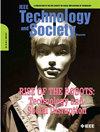超越数据:认识公民科学的民主潜力
IF 2.1
4区 工程技术
Q3 ENGINEERING, ELECTRICAL & ELECTRONIC
引用次数: 0
摘要
直到最近,"公民科学 "的知识生产方式一直局限于科学研究,适用于科学家和公民可以相互合作和信任的有限范围的问题。最近,在传统的专业化科学领域之外,这种方法越来越受到各方的关注,其中包括地方政府、民间社会组织(CSO)、专业网络和合作社。这些实体认为,公民科学是一种实用的方法,可以利用社区的集体资源来解决当地的紧迫问题,并促进强有力的参与式民主。新出现的倡议包括公民观测站、数据合作社和合作平台。尽管公民科学计划越来越受欢迎,但管理公民科学计划(在较长的一段时间内有众多参与者参与)也带来了相当大的挑战。公民科学计划的领导者要克服的困难似乎很艰巨。目前,公民科学的民主潜力还需要社会和政治参与者的进一步发展和审查。批评者经常强调公民科学的民主理想与当前的实际实施之间存在差距。本文概述了与公民科学民主化相关的主要益处和挑战。文章以 ISEED 项目1 的实证研究和 "智慧城市权利 "项目2 的理论贡献为基础,向公民科学项目的领导者提出了 10 条重要建议。本文章由计算机程序翻译,如有差异,请以英文原文为准。
Beyond Data: Recognizing the Democratic Potential of Citizen Science
Until Recently, The citizen science approach to knowledge production had been confined to scientific research, applied to a limited range of questions on which scientists and citizens could collaborate and trust each other. More recently, this approach has gained increasing attention from various quarters outside the traditional remit of professionalized science, which include local governments, civil society organizations (CSOs), professional networks, and cooperatives. These entities recognize citizen science as a practical method that harnesses the collective resources of a community to address pressing local concerns and promote a robust participatory democracy. Emerging initiatives include citizen observatories, data cooperatives, and collaboration platforms. Despite the growing popularity, managing citizen science initiatives (involving numerous participants over an extended period of time) poses considerable challenges. Leaders of citizen science initiatives grapple with difficulties that appear formidable to overcome. At present, the democratic potential of citizen science necessitates further development and scrutiny from social and political actors. Critics frequently underscore a disparity between the democratic ideals associated with citizen science and its current practical implementation. This article outlines the primary benefits and challenges associated with the democratization of citizen science. It builds from the empirical research of the ISEED project
1
as well as the theoretical contribution of the Right to the Smart City project
2
and formulates 10 key recommendations to citizen science project leaders.
求助全文
通过发布文献求助,成功后即可免费获取论文全文。
去求助
来源期刊

IEEE Technology and Society Magazine
工程技术-工程:电子与电气
CiteScore
3.00
自引率
13.60%
发文量
72
审稿时长
>12 weeks
期刊介绍:
IEEE Technology and Society Magazine invites feature articles (refereed), special articles, and commentaries on topics within the scope of the IEEE Society on Social Implications of Technology, in the broad areas of social implications of electrotechnology, history of electrotechnology, and engineering ethics.
 求助内容:
求助内容: 应助结果提醒方式:
应助结果提醒方式:


